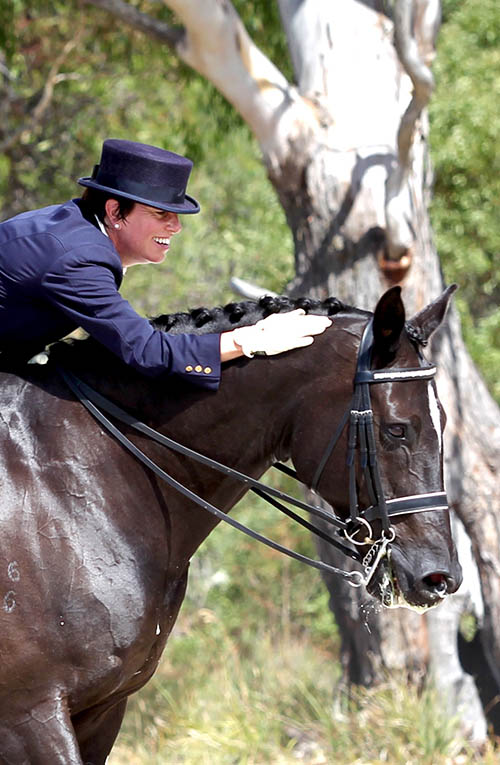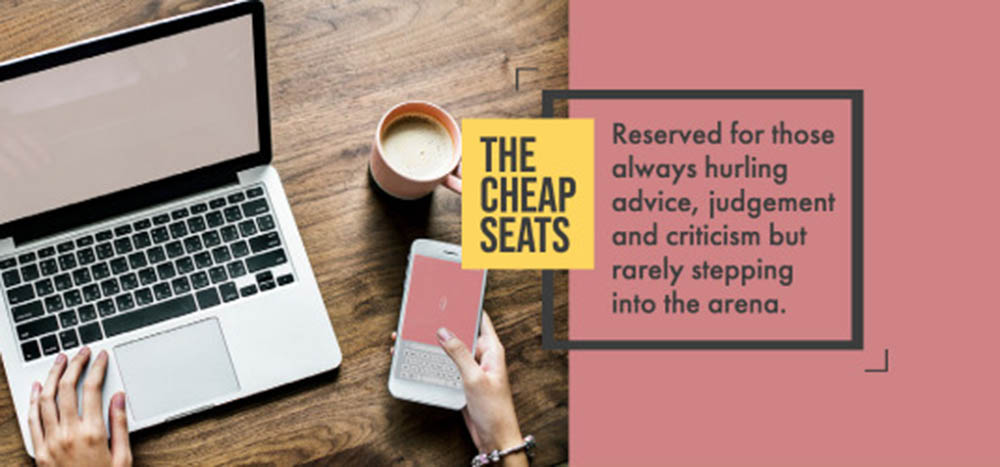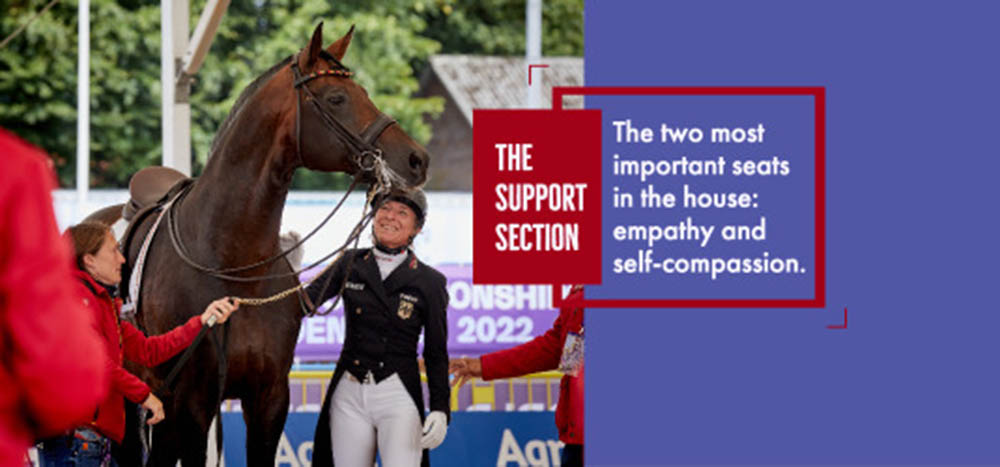Horses, riding, and dressage have consumed 90% of my life. It is fair to say that I was obsessed. Nothing could possibly fill my heart, mind, and soul to the same extent. Or so I believed.

Like so many bold statements that include the word never, I have discovered that I am in love with leadership. To the extent that I have exited my corporate finance career and blue-ribbon executive role, to heart-centred coaching and mentoring. Illuminating the transformation of emerging and current leaders to lead with authenticity, daring courage and with heart.
So, imagine my surprise when I realised that the two are dance partners. Like the deftness and energy of the tango, two elements of my life met on the dance floor and together they ignited something fabulous.
As a leadership coach and mentor, many of the clients I work with have experienced anxiety, self-doubt, panic attacks, self-sabotage, imposter syndrome, fear of failure, fear of not being accepted, low self-esteem and loneliness. At the same time, they are leading great organisations and teams with success. Often it comes at a price.
These emotions and unconscious core beliefs are not unfamiliar to those who ride, administer, coach, judge and compete in the equestrian community.
I have lived experiences in both the corporate and equestrian realms. I first sat on a horse at the age of three, a black Shetland pony, led by my dad through a park in Berlin. Decades later I purchased the perfect schoolmaster, Sunbury Lodge Toronto. With his infinite patience, desire to learn and my dogged persistence we managed to dance the Grand Prix. This was only possible after many years of training from equally patient and doggedly persistent coaches.
Similarly, to the research, study, and practice that I committed to become a better competition rider, the same is true in my role as a leadership coach.
The crossover between leadership concepts and equestrian pursuits is strong. Can you be a better leader for your horse, your committee, your board, your client? I believe the answer to that is a resounding yes!
COURAGE & VULNERABILITY
The concepts of courage and vulnerability have been researched by many and I would like to share with you Brené Brown’s research metaphor of “The Arena”. I consider Brené — an American academic and author — as the equivalent in our equestrian world to Kyra Kyrklund, Carl Hester or Ingrid Klimke. World renowned experts in their field.
Brené’s TED talk in 2010 on shame and vulnerability generated immediate interest in her work and her research went from unknown to mainstream. It is one of the five most viewed TED talks and I encourage all of you to take a moment to watch it.
In 2021, I attended a two-day Brené Brown “Dare to Lead” workshop facilitated by Zoe Coyle and Dr Polly McGee. It was SENSATIONAL! We covered so much territory, and every concept, every lesson, I could relate not only to my corporate career but also to my dressage career.

I know and have felt intimately the emotional challenges of riding and competing. I have also held multiple roles in equestrian administration and organising committees and I even had a hot minute as a dressage judge.
Riders know that horse management, lessons, training, and hours in the saddle are significant elements to the competition puzzle. While what goes on between the seat, leg and hands is crucial to the quality of what happens in the arena, so is what is going on between our ears. Our mind. The same is true if you are training to be a coach, a judge or an official.
Brené uses The Arena as a metaphor, for a moment or experience when you share yourself (your ideas, feelings, opinions, experiences, art, and expertise) knowing that you can’t control the outcome of what people think.
I was attracted to the metaphor of The Arena for obvious reasons. As a rider I had spent many, many hours in the dressage sandpit, training, attending clinics, as a masterclass rider and dressage competitor. While that may be my reference point for this article, yours may differ; however, the elements are consistent for those situations where you are sharing an element of yourself and have no control of the outcome. No different for an author, musician, dancer, painter, leader, manager, trainee, student, teacher, parent, or more succinctly — being human.
“It is not the critic who counts; not the man who points out how the strong man stumbles, or where the doer of deeds could have done them better. The credit belongs to the man who is actually in the arena, whose face is marred by dust and sweat and blood, who strives valiantly… who at the best knows in the end the triumph of high achievement, and who at worst, if he fails, at least fails while daring greatly.”
— Theodore Roosevelt
I am going to share with you this concept with my dressage competitor hat on, chin strap firmly in place and a flattering sprinkle of bling.
Making a conscious choice to sit on a 600kg sentient animal is an act of courage, especially in the spring. So too is the conscious decision to enter a competition. To place yourself and your horse in front of a judging panel to rank and assess how well you have trained your horse and your competence as a rider in your 8-minute performance, you are in a position in which you do not have 100% control of the outcome.
For many, entering a competition and then into an arena is not without the feeling of fear and anxiety. You worry about the things that could happen outside of your control. You may be feeling vulnerable, uncertain of the feedback you will receive about you as a rider, and you may equate this to your worth as a person.
These emotions can be overwhelming, and often it starts well before the day of the competition. Dr Susan David PhD is a psychologist, author and international consultant with a post-doctorate from Yale in Emotions. Susan suggests that we should be curious with our fear, thinking about why we are feeling fearful and then facing it with compassion. In doing so you can drain it of the power that it has over you. We will explore these themes in future articles.
Brené suggests that when we go to fear and feeling vulnerable, we put on armour to protect ourselves. While this may help in the short term, putting on armour is not courage, it is FEAR rising. It can play out as putting on a fake smile, your “brave face”, withdrawing from a conversation or going overtime on the !!!’s when responding to a message.
To enter the arena is a HUGE act of courage, and hand in hand with courage is vulnerability. To be courageous you are accepting that you may fail at some point, that the ride may not go to plan, and the score will show it, the spectators will know it and you will feel it.
SURVIVAL MODALITIES
In situations when we become consumed by fear we can go into three survival modalities: Flight, Fight or Freeze. As a competitor they may play out like this…
Flight – Enter and then withdraw for the competition.
Fight – Grit our teeth and compete, being over-critical of ourselves and others when things don’t go right.
Freeze – You are at the comp, and you can’t remember your test that you know off the back of your hand or you get to the competition, and you have forgotten your saddle… some have even forgotten the horse!
We all use armour to protect ourselves, it is only natural, and in the short term is designed to protect us from unwanted outcomes (i.e. receiving tough feedback or feelings of “failure” or not fitting with our peers). However, armour is heavy and uncomfortable, and it prevents us from growing and learning the lessons set before us.
I want you to close your eyes and just imagine…
You are entering the dressage arena at A. You are wearing your BEST armour to protect yourself. How does it feel? Heavy? Rigid? You can’t breathe properly? You can’t move fluidly? Your aids are stiff and your seat insecure.


Let’s explore the arena as described by Brené. Around the arena there are:
The Cheap Seats – Often found on social media and often far away from the arena itself.
The Season Ticket Holders – closer to the arena than the Cheap Seats, they may have some experience in the arena or knowledge of competing.
The Box Seats – The rules and regulations and organising committee associated with the competition.
And 15 metres away from A is the Support Section.
Here are some Arena moments – any sound familiar?
The Cheap Seats – “Did you see the live scores? OMG so hopeless, how low can you go? Yeah, I saw the video they shared online — that extended trot was not even close. Did you see that photo? That horse is soooo overbent.”
The Season Ticket Holders – “I could have done better than that. That horse was so much better when ridden by the trainer in Europe.”


The Box Seats – “Why did I score a 4 for that movement with the Judge at C and a 6 with the judge at B?”
The Support Section – “Breathe, you’ve got this. Trust your work, trust yourself. GO for it! I’ve got this! Well done, you gave it all that you could at that point in time.”
Vulnerability is not weakness, it’s our greatest measure of courage, says Brené — and I agree wholeheartedly.
There are many aspects of our equestrian pursuits that we cannot control, especially in the context of The Arena. What we can control is our response.
Ignoring the Cheap Seats and the Season Ticket Holders is hard. Acceptance, feeling of belonging, and recognition are core to our humanity. Ignoring the Box Seats can come at a cost. The Support Section is precious and learning to have empathy and compassion for YOURSELF is the biggest reward in life and something that is achievable and profound.
What empathy looks and sounds like is not necessarily an open invitation to wallow in self-indulgence and absolve yourself of responsibility. It is important to acknowledge that as humans we all have capacity to make mistakes. Empathy invites us to lean into the difficult feeling and offer compassion to ourselves so that we learn from the experience rather than withdrawing, retaliating or even becoming our own punching bags (not helpful).
Next time you find yourself wrestling with the Cheap Seats, the Season Ticket Holders and the Box Seats, ask yourself – is this serving me well? Place your attention and faith in the Support Section. Not only your coach, friends, and family, but most importantly YOURSELF.
When you are feeling vulnerable, embrace the suck, dust yourself off, reassure yourself that you did your best, that it is only a moment in time; reflect and be curious about the feelings that are coming to your mind, and give yourself the same hug that you give your horse when you acknowledge that they have done their best too.
There is no courage without vulnerability, and it is a prerequisite for behaviours to leading bravely — and the same is true for riding bravely, judging bravely, and making brave decisions as a leader of the equestrian board and committees.
When exploring the Support Section of Empathy and Self-Compassion, Dr Kristin Neff, who runs the Self Compassion Research Centre in California, defines self-kindness as “being warm and understanding towards ourselves when we suffer, fail, or feel inadequate, rather than ignoring our pain of flagellating ourselves with self-criticism.”
Brené offers self-compassion as this: “Talk to yourself the way you’d talk to someone you love.”
Focus and nurture your Support Section; empathy and self-compassion are skills that can be learnt. The remainder of The Arena is out of your control, remember that.

Rumbling with vulnerability, as Brené describes it, is an act of courage that can lead you to daring greatly.
Just imagine, what would you be doing if you were being courageous?
Next time we will dig a little deeper into the feelings that come with being human. I will share with you the teachings of Susan David and others on how to be curious with these feelings, and to learn to understand what they are signposting so that they become your greatest strength and not your crippling weakness.
Through the research and discoveries of the best leadership minds I will explore how you can develop the skills and self-awareness to become a better leader of your horse, yourself, and the equestrian community.
If you are curious to learn more, you can find Brené Brown’s Dare to Lead podcast free on Spotify, her books are available online and in bookstores, and her Atlas of the Heart series is available on Netflix. Kristen Neff can also be found online, her website is a wealth of information on how you can learn to develop self-compassion.
Until next time…
What would you be doing if you were being courageous? EQ
YOU MIGHT ALSO LIKE TO READ:
Maddi’s Career Right On Que – Equestrian Life, February 2023

